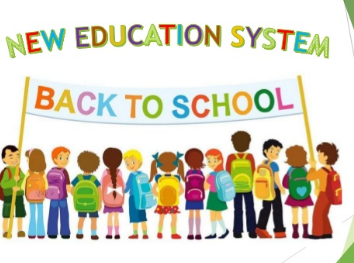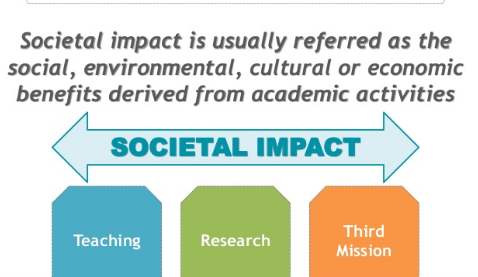The question of what defines the optimum education system is not necessarily easy to answer, but it’s important to try. How do you think educators would answer this question? Would you find it surprising that they often don’t consider that question? When they do, the answers aren’t what one might expect. There is no question in my mind we need an education system redesign.

Here is what Daniel Pink has to say: The future belongs to a very different kind of person with a very different kind of mind … creators and empathizers, pattern recognizers, and meaning makers.
Look at the Daniel Pink definition of the ‘educated’ person of the future shown above. One who is a creator, a pattern recognizer, and a meaning maker? The ability to create an educated person is certainly become more complex, isn’t it? But certainly growing in importance.
Related: Ideas on Learning Reform and Its Instructional Implications
Marion Brady is a veteran educator who has long argued that public education needs a paradigm shift, though not the same one that school reformers who push the Common Core State Standards, school choice and vouchers want to see. What Brady and like-minded educators say is needed is an overhaul in what and how students learn.
We are big fans of the thinking of Marion Brady. Ever read any of his books or articles? He is a longtime teacher; school administrator; nationally distributed newspaper columnist; and author of courses of study, textbooks, and professional books. His most recent is “What’s Worth Learning?” published by Information Age Publishing.
Educators have been handicapped for more than a century by a curriculum adopted to serve a too-narrow purpose—admission to college—and failure to address that curriculum’s problems has made the institution vulnerable to destructive corporate and political manipulation.
Have you ever done any reading on ideas for learning reform or ways to improve our educational system? One of the outside interests of this agency is learning and education.
We are ones that believe that not enough is being done to increase the learning of creativity in our schools. So, therefore, we like to read and engage in discussions on ideas on learning reform and its instructional implications. The following is an excerpt from an article by Marion Brady in the Washington Post.
We are sharing it with you because we happen to strongly agree with Marion’s thoughts and we hope it will stimulate some discussion within this community:
Modern education, worldwide, has lost sight of its primary mission—helping humankind survive.
Survival requires adapting to change. Adapting to change requires new knowledge. New knowledge comes from the discovery of relationships between parts of reality not previously thought to be related. Because the math-science-language arts-social studies “core” curriculum ignores important fields of study and fails to treat those it doesn’t ignore as parts of an integrated whole, it radically limits relationship-discovery options.
Locking the core curriculum in permanent place with the Common Core State Standards perpetuates the most serious problem with modern education—its perspective-limiting boundaries.
Below is Brady’s list of nationally and internationally known and respected scholars and how they weigh in on the education problems. I have grouped them into 4 problem categories that Brady likes to discuss:
Curriculum
Leon Botstein: “We must fight the inappropriate fragmentation of the curriculum by disciplines . . .” The Chronicle of Higher Education, December 1, 1982, p. 28,
Neil Postman: “There is no longer any principle that unifies the school curriculum and furnishes it with meaning.” Phi Delta Kappa, January 1983, p. 316
Ernest Boyer: “All of our experience should have made it clear by now that faculty and students will not derive from a list of disjointed courses a coherent curriculum revealing the necessary interdependence of knowledge.” (Paraphrased by Daniel Tanner in his review of Boyer’s book High School. Phi Delta Kappa, March 1984, p. 10)
David William Cohen: “Testing companies, textbook publishers, teacher specialists, associations representing specific content areas, and other agencies all speak in different and often inconsistent voices…The U.S. does not have a coherent system for deciding on and articulating curriculum and instruction.” (Phi Delta Kappa, March 1990, p. 522
Education systems approach
John Kemeny: “The problems now faced by our society transcend the bounds of the disciplines.” Quoted by William Newell in Liberal Education, Association of American Colleges, 1983, Vol. 69, No. 3
Knowledge Integration
John Goodlad: “The division into subjects and periods encourages a segmented rather than an integrated view of knowledge. Consequently, what students are asked to relate to in schooling becomes increasingly artificial, cut off from the human experiences subject matter is supposed to reflect.” A Place Called School, McGraw-Hill, 1984, p. 266

Theodore Sizer: “The fact is that there is virtually no federal-level talk about intellectual coherence. The curricular suggestions and mandates leave the traditional “subjects” in virtually total isolation, and both the old and most of the new assessment systems blindly continue to tolerate a profound separation of subject matters, accepting them as conventionally defined… The crucial, culminating task of making sense of it all, at some rigorous standard, is left entirely to [the student].” School Reform and the Feds: The Perspective from Sam. Planning and Changing, v22 n3-4 p248-52 1991
Harlan Cleveland: “It is a well-known scandal that our whole educational system is geared more to categorizing and analyzing patches of knowledge than to threading them together.” Change, July/August 1985, p. 20)
David W. Orr: [Formal schooling] “imprints a disciplinary template onto impressionable minds and with it the belief that the world really is as disconnected as the divisions, disciplines, and subdivisions of the typical curriculum. Students come to believe that there is such a thing as politics separate from ecology or that economics has nothing to do with physics.” Earth In Mind, Island Press, 1994, p.23
Robert Stevens: “We have lost sight of our responsibility for synthesizing knowledge.” (Liberal Education, Vol. 71, No. 2, 1985, p.163)
Arnold Thackray: “The world of our experience does not come to us in the pieces we have been carving out.” Quoted in The Chronicle of Higher Education, October 1987, p. A 14
Societal Impact
Buckminster Fuller: “American education has evolved in such a way it will be the undoing of the society.” (Quoted in Officer Review, March 1989, p.5)

Peter M. Senge: “From a very early age, we are taught to break apart problems, to fragment the world. This apparently makes complex tasks and subjects more manageable, but we pay a hidden, enormous price. We can no longer see the consequences of our actions; we lose our intrinsic sense of connection to a larger whole.” The Fifth Discipline, Currency Doubleday 1990, p.3
Thomas Merton: “The world itself is no problem, but we are a problem to ourselves because we are alienated from ourselves, and this alienation is due precisely to an inveterate habit of division by which we break reality into pieces and then wonder why, after we have manipulated the pieces until they fall apart, we find ourselves out of touch with life, with reality, with the world, and most of all with ourselves.” Contemplation in a World of Action, Paulist Press, 1992, p.153)
The bottom line
As Brady says … deal successfully with the problem that the above and dozens of other scholars have pointed out, and the curriculum (education system) that emerges will be so illuminating, so powerful, so relevant, so useful, so easily taught and learned, it will change everything it touches.
At the start of this article, we acknowledge we were big fans of Marion Brady. So it should be of no surprise that we are in close agreement with most of his conclusions. Unfortunately, so far, his voice is lost in a wilderness lacking any desire or ability to change. Speak out with your opinions on the need for change.
If you would like to do more reading of his excellent work, his web site is www.MarionBrady.com.
